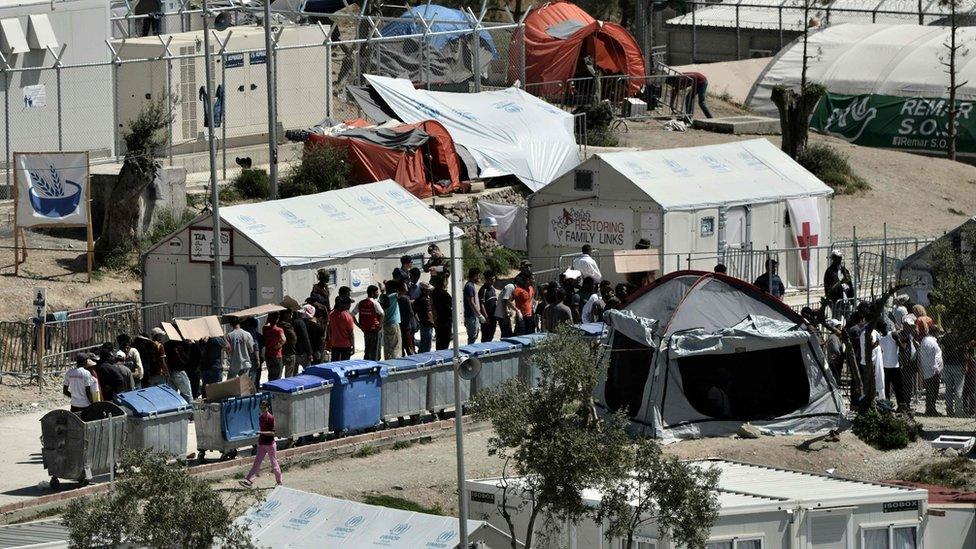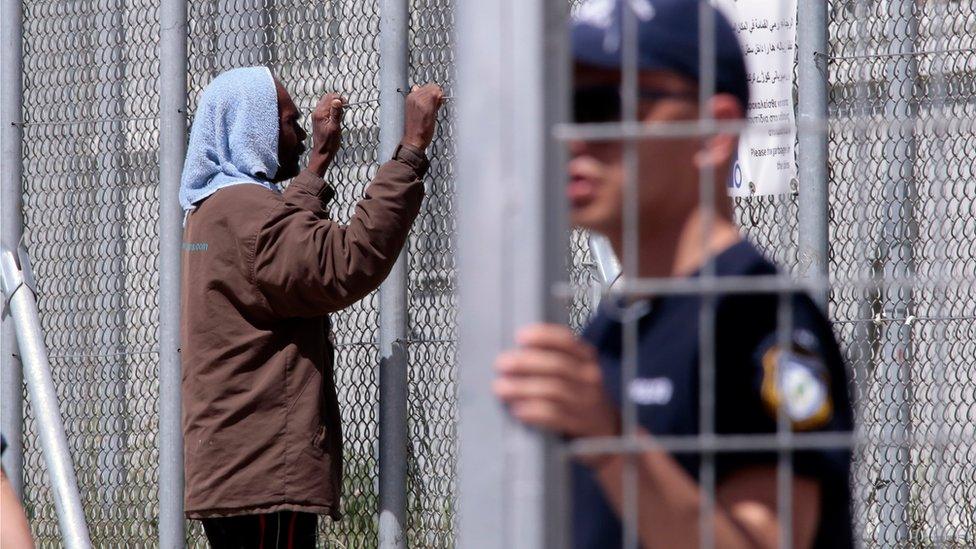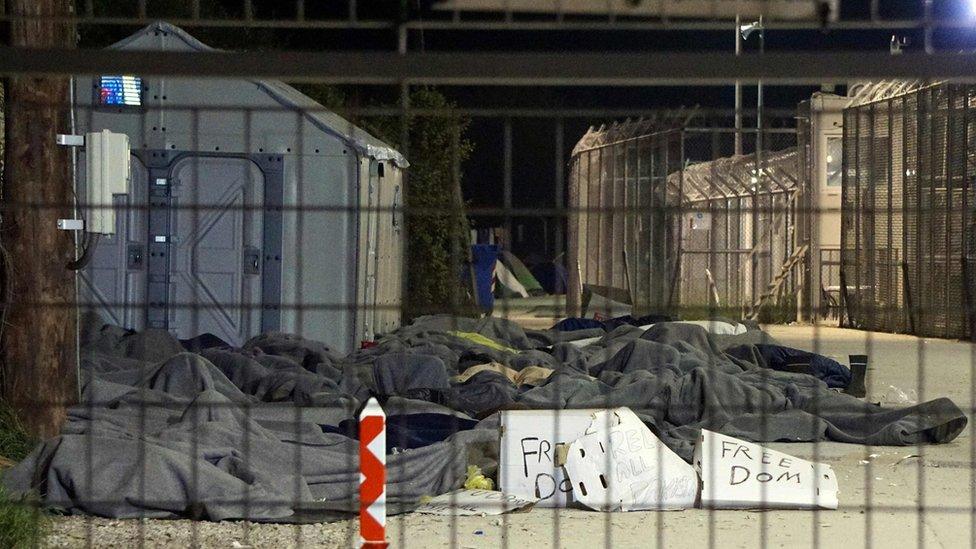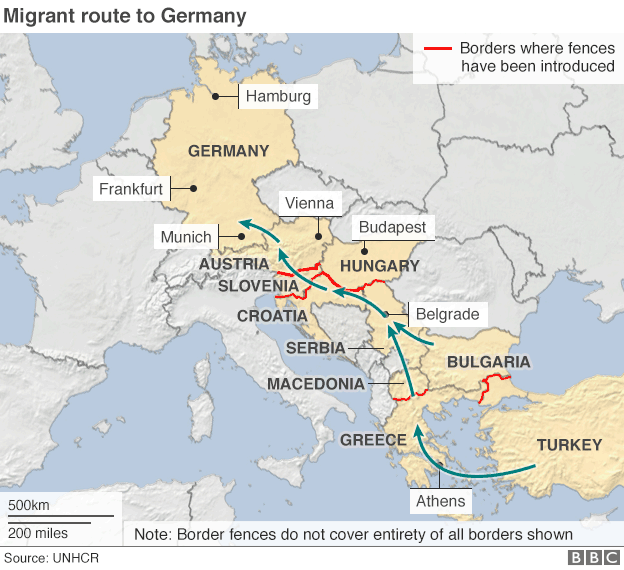Migrant crisis: Syrian attempts suicide on Lesbos before Pope visit
- Published

Some Syrians at Moria say they fear being forcibly returned to Syria if sent back to Turkey
A Syrian has attempted to kill himself in a detention camp for refugees and migrants on the Greek island of Lesbos ahead of a visit by Pope Francis.
People at the Moria camp told the BBC that one of a group of Syrians, who had been told they would be sent back to Turkey, had tried to hang himself but was prevented by police.
Migrants later demonstrated, demanding better treatment and to stay in Europe.
The Pope is due to address refugees at the Moria detention centre on Saturday.
His visit to Lesbos aims to draw attention to what the Vatican has described as the "front line" of the migrant crisis.
The Greek authorities have not yet commented on the suicide attempt, which was confirmed by non-governmental organisations on the island.
The man was among four Syrians who have now appealed against their deportation orders.
However, some Syrians on Lesbos say they are terrified by the thought of returning to Turkey because of reports that hundreds of Syrians have been forcibly returned from Turkey to Syria.
Turkey has denied sending back any refugees against their will.

Pope Francis is due to address migrants at the Moria camp on Saturday
Refugees and migrants also complain of overcrowded conditions and a lack of food in the Moria detention centre.
Controversial deal
Of about 4,000 people being held at the facility, 2,000 are due to be deported.
Under the EU deal with Turkey, migrants arriving illegally in Greece after 20 March are expected to be sent back to Turkey if they do not apply for asylum or if their claim is rejected.
For each Syrian migrant returned to Turkey, the EU is due to take in another Syrian who has made a legitimate request.
Those Syrians refused asylum in Greece will be taken to refugee camps in southern Turkey, where in time they will take the place of those Syrians directly resettled in the EU under the so-called "one-for-one plan".

Some Pakistani migrants went on hunger strike to protest against their deportation
Most of those returned to Turkey so far have been from countries such as Pakistan and Afghanistan, which are not considered to be at war. However some Syrians have also been deported.
The plan is controversial because many countries including Greece do not consider Turkey to be a safe place for migrants. Turkey has signed readmission agreements with more than 10 countries.
The Vatican insists the pontiff's five-hour visit is purely humanitarian and religious in nature and should not be seen as a criticism of the deportations.
Pope Francis will be greeted by 150 children at the detention centre before addressing about 250 of the people being held there.
He will be joined by Ecumenical Patriarch Bartholomew, the spiritual leader of the world's 300m Orthodox Christians, and the head of the Orthodox Church of Greece, Athens Archbishop Ieronymos II.

Key points from EU-Turkey agreement
Returns: All "irregular migrants" crossing from Turkey into Greece from 20 March will be sent back. Each arrival will be individually assessed by the Greek authorities
One-for-one: For each Syrian returned to Turkey, a Syrian migrant will be resettled in the EU. Priority will be given to those who have not tried to illegally enter the EU and the number is capped at 72,000
Visa restrictions: Turkish nationals should have access to the Schengen passport-free zone by June. This will not apply to non-Schengen countries like Britain
Financial aid: The EU is to speed up the allocation of €3bn ($3.3 bn; £2.3 bn) in aid to Turkey to help migrants
Turkey EU membership: Both sides agreed to "re-energise" Turkey's bid to join the European bloc, with talks due by July



A note on terminology: The BBC uses the term migrant to refer to all people on the move who have yet to complete the legal process of claiming asylum. This group includes people fleeing war-torn countries such as Syria, who are likely to be granted refugee status, as well as people who are seeking jobs and better lives, who governments are likely to rule are economic migrants.